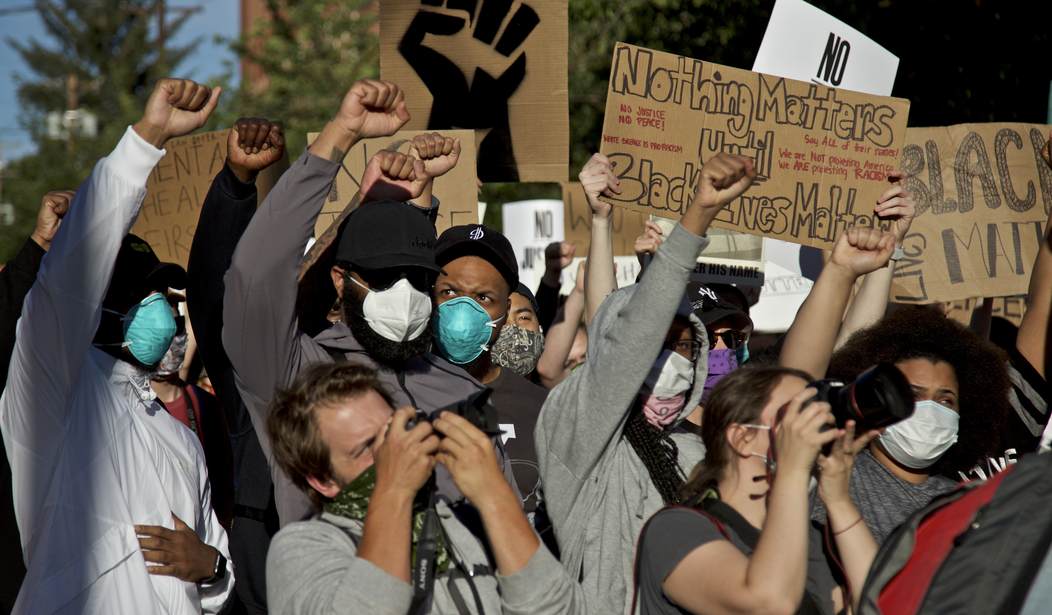Once upon a time, academics would debate each other when they disagreed. They would publish papers or write letters. Seminars got heated, but people didn’t take the disagreements personally.
Today, academics demand that their opponents be fired.
University of Chicago Professor Harald Uhlig has learned this lesson the hard way. In a series of Tweets, Uhlig questioned the sensibility of Black Lives Matters’ goal of defunding police. He worried: “Too bad, but #blacklivesmatter per its core organization @Blklivesmatter just torpedoed itself.” Instead, he wrote: “We need more police, we need to pay them more, we need to train them better.” He went on to equate defunding the police with being a “flat-earthers.”
In response, prominent Democrat economists such as Paul Krugman, Obama administration chair of the Federal Reserve Janet Yellen, Justin Wolfers at the University of Michigan, and many others called for Uhlig to be fired as editor of the prestigious Journal of Political Economy. A professor that I know at the University of Michigan emailed me: “It is not just Wolfers. I have received emails from a colleague and doctoral students (past and current) urging action against Uhlig that just take for granted that disagreement with their position is beyond the pale.”
Although most academic economists are Democrats, they also overwhelmingly believe that law enforcement deters crime. The whole field is based on the simple idea that if you make things more costly, people will do less of it. If you raise the price of apples, people will buy fewer apples. But it also applies to crime. If you make crime riskier for criminals (with higher arrest rates or longer prison sentences), people will commit less crime.
Recommended
But instead of trying to understand why economists think the way that they do, many on the left would rather just shout racism. A New York Times reporter Tweeted out: “Economics is overwhelmingly white, and has a reputation for being dismissive of (if not openly hostile to) Black economists.”
Economists estimate that changes in arrest rates account for about 16 to 18 percent in the variations in murder rates between places, and that conviction rates explain another 12 percent. The death penalty is also a deterrent to committing murder, and explains an estimated 12 percent of the variation in murders.
If you want to get rid of the police, that will mean no arrests, no convictions, no prisons, and no death penalty. This change would be so far outside anything that the US has ever experienced, but it may very well cause an 80 percent or more increase in murder rates.
Economists also find that the benefits of policing are greatest in those areas where crime rates are highest — namely poor, black, urban areas. These neighborhoods would stand to lose the most by defunding the police.
The media have helped create a biased perception that is far from the reality of shootings by police. The Crime Prevention Research Center (where I serve as president) found that when a white officer kills a suspect, the media usually mention the race of the officer. When the officer is black, any news coverage rarely mentions the race of the officer.
After accounting for whether the suspect who was shot was armed or committing a crime and other factors, including the average differences across police departments to deal with cultural differences in departments, we found that black officers were at least as likely as their white peers to kill black suspects, and actually more likely to kill unarmed blacks than were white officers.
Uhlig's claim that we need to train our officers better is the opposite of claiming that there is no problem to be addressed, but there’s no evidence of systemic racism in our nation’s law enforcement.
It’s not too surprising that young news reporters are agitating to get people fired. That's the sort of radical intolerance that our colleges are now breeding.
We should openly debate whether the Black Lives Matter agenda will do more harm than good to blacks, not shut down intellectual discourse by trying to get people fired.
* Lott is the president of the Crime Prevention Research Center

























Join the conversation as a VIP Member